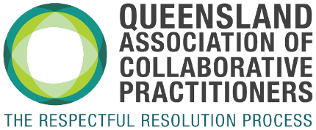A growing number of couples are turning to collaborative law to resolve complex family law cases to avoid the stress and emotional toll of protracted courtroom battles.
Australia has one of the highest divorce rates in the world with current trends suggesting between 32 per cent and 46 per cent of marriages will end in divorce, according to data from the Australian Institute of Family Studies.
In Queensland the number of couples living in de facto relationships has risen from 15 per cent to 20 per cent in the last 15 years with the same issues and pressures causing relationship breakdowns within both groups of separating couples.
This new approach to family law encourages couples to resolve the issues arising from separation in a collaborative way that promotes cooperation and puts the interests of the children first, according to the industry body representing collaborative law professionals in Queensland.
“With collaborative law the clients sign an agreement not to go to court,” said Queensland Collaborative Law president Freda Wigan.
“Instead, they agree to work alongside each other to reach a mutually beneficial agreement with the help of their individual lawyers.
“Independent experts such as psychologists and financial experts are also brought in as needed to offer advice.
“This is a much less aggressive approach to resolving separation differences which gives couples more control.
“If they can co-operate and remain child-focused, they will be better placed to achieve the best outcome for themselves and their children.
“The process is equally effective where no children are involved but where the parties wish to resolve matters in a positive and respectful way.”
Collaborative law is a relatively new form of dispute resolution, pioneered in the late 1990s by Minneapolis family lawyer Stuart G. Webb.
This new method of family law practice is recommended for couples who are keen to resolve issues privately and with minimal conflict and has become a recognised choice for settling family disputes throughout the United States, Canada and much of Europe.
Queensland Collaborative Law estimates there are more than 100 collaboratively-trained professionals throughout Queensland. Many are also members of the International Academy of Collaborative Practitioners (IACP).
“Collaborative practice is growing strongly in Australia, particularly in Queensland as more and more practitioners and couples realise the benefits of a collaborative approach to family law,” said Ms Wigan.
“Compared to the US and Canada, there is still relatively little awareness in Australia but things are changing and we are seeing many clients who want to resolve things amicably and work together in a mutual goal-based process.”
The four pillars of collaborative practice*
- The voluntary, free and open exchange of information
- The promise not to litigate (go to court ), and the mandatory withdrawal of both solicitors and other team professionals if either party litigates
- The professionals’ commitment to use their best skills to assist you in reaching an agreement without having to resort to judicial decision-making
- A balanced commitment to respect both parties’ shared goals
*Source: International Academy of Collaborative Professionals
-ends-
For further information, please contact:
Merrett Pye Caroline Thurlow
Altitude PR Altitude PR
0422 096 049 0414 565 575
About QCL
Queensland Collaborative Law was established in 2006 and is the leading association for collaboratively trained professionals in Queensland. For more information go to www.qacp.org.au.
